Faculty News
Pages
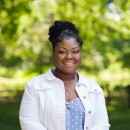 Daicia Price Quoted in Crain’s Detroit About Police Department Mental Health Units
Daicia Price Quoted in Crain’s Detroit About Police Department Mental Health UnitsClinical Associate Professor Daicia Price is quoted in a Crain’s Detroit article on the challenges in creating specialized units to respond to mental health emergency calls. The Detroit Police Department, which created a mental health unit at the end of 2022, received over 16,000 calls last year that involved someone in mental distress — or more than 43 calls per day. That unit has grown to 22 officers, three sergeants, a lieutenant and six behavioral health specialists. But finding social workers and psychologist to work in these units is a challenge. Michigan is facing a shortage of mental health professonals and, as Price noted, these community programs simply can’t compete with private practice.
“We were providing training to co-responders, and they went out in the field and found out it wasn’t suitable,” Price said. “They can go into private practice or the private sector and make $30,000 more with half the responsibilities. How do we train behavioral health individuals to be in these settings and make sure they deliver that public service and compensated the way they should when they can sit in an office with people with milder disorders and make more money?”
- May 14, 2024
- Learn more »
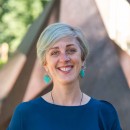 Katie Schultz Awarded Grant from the National Institute on Drug Abuse
Katie Schultz Awarded Grant from the National Institute on Drug AbuseAssistant Professor Katie Schultz is a principal investigator on a recently awarded R01 grant, funded by the National Institute on Drug Abuse. This longitudinal, mixed methods study will examine changes in the social networks of American Indian youth across adolescence and collect community-level social network data to identify optimal timing and strategies for culturally grounded prevention of substance use, suicide and exposure to violence at the micro (individual) and macro (community) levels.
“I’m excited to continue this work with my colleagues and our community partners to build upon findings from our previous work, the Tribal Adolescent Connections Study,” said Schultz. “This new study will further our understanding of how social networks, a salient feature of American Indian culture, might operate and be harnessed in culturally grounded, preventive interventions.”
- May 14, 2024
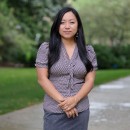 Odessa Gonzalez Benson Joins Editorial Board of Social Service Review
Odessa Gonzalez Benson Joins Editorial Board of Social Service ReviewAssistant Professor Odessa Gonzalez Benson has joined the editorial board of Social Service Review. The journal publishes original research on social issues, social welfare policy and social work practice. Established in 1927, it is the oldest continually published social welfare journal in the U.S.
- May 14, 2024
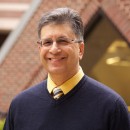 Robert Ortega Joins Editorial Board of Child Welfare
Robert Ortega Joins Editorial Board of Child WelfareAssociate Professor Robert Ortega has joined the editorial board of Child Welfare. The peer-reviewed journal keeps readers abreast of the special problems facing millions of children, families, parents, caregivers and the child welfare professionals who serve them. As an editorial board member, Ortega will help guide the trajectory of the journal, review article submissions and share his related knowledge of the discipline.
- April 30, 2024
 Barry Checkoway’s Book “Youth Dialogues on Race and Ethnicity: Challenging Segregation, Strengthening Diversity” Published
Barry Checkoway’s Book “Youth Dialogues on Race and Ethnicity: Challenging Segregation, Strengthening Diversity” PublishedProfessor Emeritus Barry Checkoway’s new book, “Youth Dialogues on Race and Ethnicity: Challenging Segregation, Strengthening Diversity,” has been published by Oxford University Press. The book illustrates how young people can collaborate across boundaries and actively participate in the decisions that affect their lives and transform their communities.
- April 5, 2024
- Learn more »
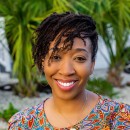 Daphne Watkins Named Letha A. Chadiha Collegiate Professor
Daphne Watkins Named Letha A. Chadiha Collegiate ProfessorDaphne Watkins was appointed as the Letha A. Chadiha Collegiate Professor of Social Work. Watkins is the founding director of the Gender and Health Research (GendHR) Lab, the Certificate Program in Mixed Methods Research, and the award-winning Young Black Men, Masculinities, and Mental Health (YBMen) Project, which leverages technology to provide mental health education and social support for young Black men.
Watkins’ research focuses on how gender differences and health disparities influence the mental health of Black Americans, with the aim of increasing what we know about mental disorders and how they impact the health and health behaviors of Black men. She has built an interdisciplinary conceptual framework of mental health that integrates role socialization and intersectional understanding of the cultural positions of Black men given additional other social identities of age, education, ethnicity, social support, and life stress. Watkins is also a University Diversity and Social Transformation Professor.
- April 5, 2024
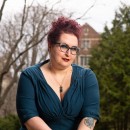 Shanna Kattari Quoted in The San Diego Union-Tribune on Sexual Stereotypes
Shanna Kattari Quoted in The San Diego Union-Tribune on Sexual StereotypesAssociate Professor Shanna Kattari spoke with The San Diego Union-Tribune about sexuality and disability.
“I think, even something as simple as bringing up conversations around sexuality and desire with disabled folks is huge because it’s often something that’s not talked about at all,” said Kattari. “When people don’t see themselves in media, they don’t see themselves in the sex ed conversations that are happening (if they’re lucky enough to even be included in sex ed because a lot of young, disabled people are trekked out of classrooms during the sex education portion), then they don’t have the words, the language, the skill set to talk about needs and desires.”
- April 2, 2024
- Learn more »
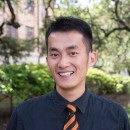 Anao Zhang Receives The Avery D. Weisman & J. William Worden Award for New Investigators
Anao Zhang Receives The Avery D. Weisman & J. William Worden Award for New InvestigatorsAssistant Professor Anao Zhang has received the 2024 Avery D. Weisman & J. William Worden Award for New Investigators from the American Psychosocial Oncology Society (APOS) for 2024. This award is presented to a junior scientist who makes outstanding research contributions in the field of psychosocial oncology.
“I am humbled and honored to receive this year's new investigator award. I appreciate APOS supporting me in attending this year's annual conference. I look forward to continuing my research to advance health equity for adolescent and young adult cancer survivors, especially those from underserved backgrounds.”
- March 20, 2024
- Learn more »
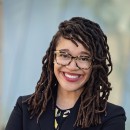 Ashley Cureton Selected as LEAD Global Training Program Fellow
Ashley Cureton Selected as LEAD Global Training Program FellowAssistant Professor Ashley Cureton was recently selected to be a fellow for the LEAD Global Training Program of Washington University in St. Louis. This training program is funded by the National Institute on Minority Health and Health Disparities Research Training Program. She will undergo an intensive 10-week summer training in the U.S. and Uganda to develop skills and experiences needed to lead multi-disciplinary, collaborative research teams focused on health disparities in low-resource communities.
"I am thrilled to be selected for this prestigious program which will enable me to gain more skills on how to engage in community-engaged mental health research in global spaces and build on previous global work in countries like South Africa, Zambia, Jordan, Turkey, Lebanon, and India,” said Cureton. “I am confident that this experience will propel my future in a meaningful way as I design and implement school-based, mental health interventions and support for refugee and migrant populations, particularly for children and youth, in the U.S. and globally.”
- March 19, 2024
 Daphne Watkins’ Book Receives 2024 Most Promising New Textbook Award
Daphne Watkins’ Book Receives 2024 Most Promising New Textbook AwardProfessor Daphne Watkins’ book "Secondary Data in Mixed Methods Research" has won a 2024 Most Promising New Textbook Award from the Textbook & Academic Authors Association. The award recognizes excellence in first edition textbooks and learning materials. Works are judged by textbook authors and subject matter experts for their merits in four areas: pedagogy, content/scholarship, writing, and appearance and design.
- March 14, 2024
- Learn more »